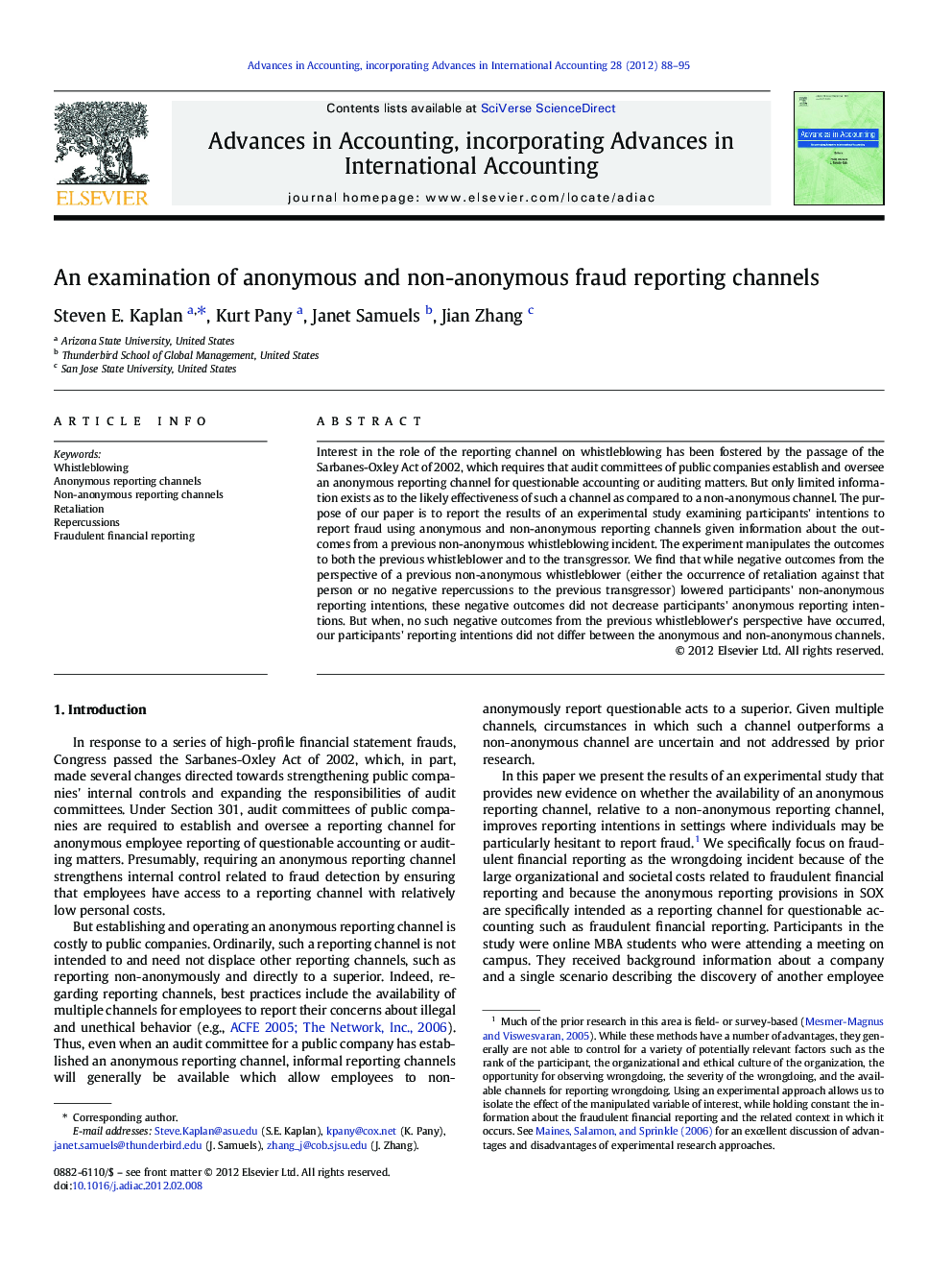| Article ID | Journal | Published Year | Pages | File Type |
|---|---|---|---|---|
| 7340717 | Advances in Accounting | 2012 | 8 Pages |
Abstract
Interest in the role of the reporting channel on whistleblowing has been fostered by the passage of the Sarbanes-Oxley Act of 2002, which requires that audit committees of public companies establish and oversee an anonymous reporting channel for questionable accounting or auditing matters. But only limited information exists as to the likely effectiveness of such a channel as compared to a non-anonymous channel. The purpose of our paper is to report the results of an experimental study examining participants' intentions to report fraud using anonymous and non-anonymous reporting channels given information about the outcomes from a previous non-anonymous whistleblowing incident. The experiment manipulates the outcomes to both the previous whistleblower and to the transgressor. We find that while negative outcomes from the perspective of a previous non-anonymous whistleblower (either the occurrence of retaliation against that person or no negative repercussions to the previous transgressor) lowered participants' non-anonymous reporting intentions, these negative outcomes did not decrease participants' anonymous reporting intentions. But when, no such negative outcomes from the previous whistleblower's perspective have occurred, our participants' reporting intentions did not differ between the anonymous and non-anonymous channels.
Related Topics
Social Sciences and Humanities
Business, Management and Accounting
Accounting
Authors
Steven E. Kaplan, Kurt Pany, Janet Samuels, Jian Zhang,
